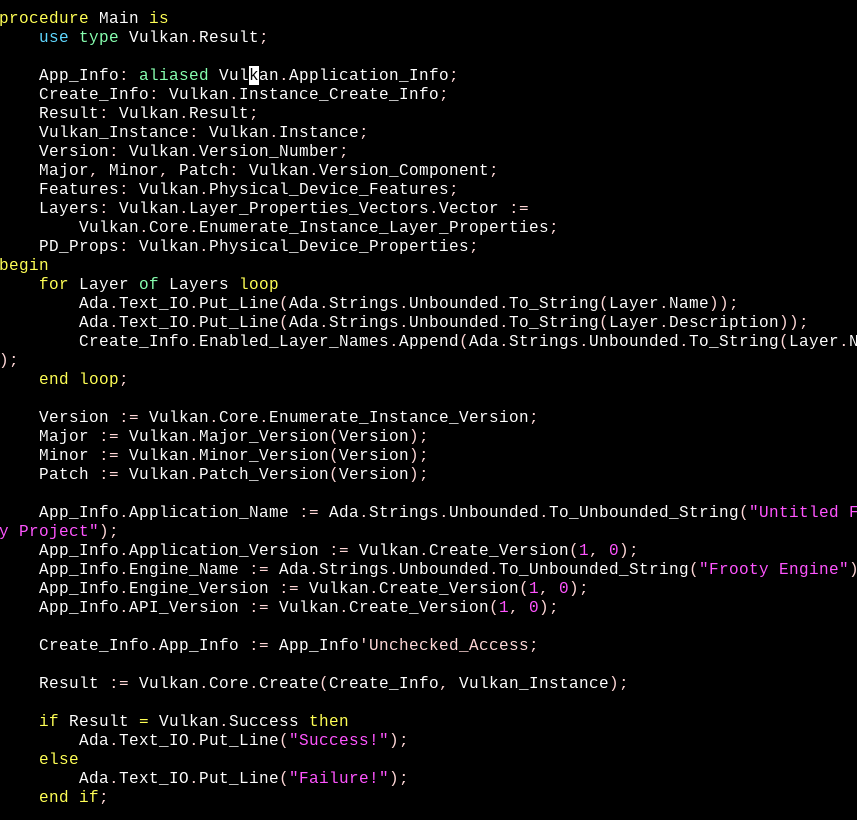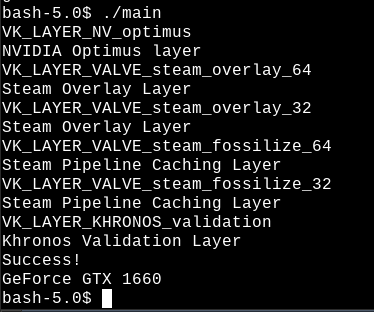My current game project is being written in C++, which is my second favorite programming language. My favorite is Ada.
Ada doesn’t get that much attention among most programmers and it’s a shame. My favorite way to describe it is “C++ without all the C baggage.” Whenever people talk about wanting a better C++, I tell them that it already exists. It’s called Ada.
For those unfamiliar with it, Ada was originally developed for the US Department of Defense. Ada is a language that doesn’t fool around. It was designed for the sort of programming where bugs are completely unacceptable. Software where glitches could have disasterous consequences. Think air-traffic control systems, missile guidance, railway switching, and so on. Over the years, Ada has evolved into a robust and full-featured general programming language. It’s the only language I’m aware of that can stand toe-to-toe with C++ in terms of features. I love it.
I’ve been toying with game development in Ada for several years. I’ve done a few toy-projects, and one very large one that unfortunately never made it across the finish line. It’s a fine language for that sort of work. The only problem is libraries.
I love writing library interfaces for Ada. In the past I’ve done complete Ada bindings for both OpenAL and OpenGL. I really want to do my next PC project in Ada, and I also want to make the jump to from OpenGL to Vulkan. Thus, the VulkAda project was born.
If there’s already an Ada binding for Vulkan, I haven’t found it. Even if there is one, I still want to make my own. Most Ada interfaces to C APIs aren’t very Ada-like. GCC even includes a tool that will generate Ada specification files from C headers. They work, but they’re awkward to use due to fundamental differences in the languages. String handling is an excellent example. Ada strings and C strings are incompatible with each other. Ada provides all the tools necessary to convert to back and forth, but it’s pain to do this in user code so I want this nonsense wrapped up.
VulkAda is something I work on when I have nothing else to do. It’s a long tedious process, but I’m finally starting to see the light at the end of the tunnel. I’ve nearly completed the Vulkan 1.0 API. My C header goes up to 1.2, so that’s where I’ll stop for now. Check this out:

Here’s some simple test code I wrote using my Vulkan interface. It doesn’t do much, just queries the video card for some properties and creates a Vulkan instance, but it works! I have a matching C program that I compare the output with and it’s an exact match, so I must be doing something right. Running this little program produces this:

This is the list of Vulkan layers supported by my video card. I have no idea what a Vulkan layer is, but there they are!
Oh yeah, that’s the other fun thing about this. Despite binding most of the Vulkan 1.0 API, I’ve still never really used Vulkan. I still have a lot to learn.
When I start my next game, which for now shall be referred to as “Untitled Frooty Project,” I’ll finally get the chance to give this stuff a thorough testing. I plan to make VulkAda available once that project starts, with the understanding that it’s a work-in-progress and parts of it will almost certainly change as my game develops and I find bugs. Fun stuff, and I can’t wait to start working with it.
